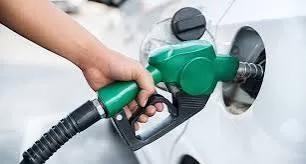
AGAIN, NNPC INCREASES FUEL PUMP PRICE TO ₦1,030/LITRE
The Nigerian National Petroleum Company Limited, NNPCL, has again jerked up the pump price of the Premium Motor Spirit, PMS, also known as petrol to N1,030 per litre.
The development was observed by our correspondent at some NNPCL outlets in Abuja on Wednesday.
The recent development came after the NNPCL decided to terminate its exclusive purchase agreement with Dangote Refinery.
This means the NNPCL will no longer be the sole off-taker, and marketers can now negotiate prices directly with Dangote Refinery.
In the Federal Capital Territory, FCT, the product was previously sold for N897 per liter.
Our correspondent further gathered that in Lagos, fuel which previously sold for N885 per litre, is now being sold at N998 amid long queues.
 Premium News
Premium News